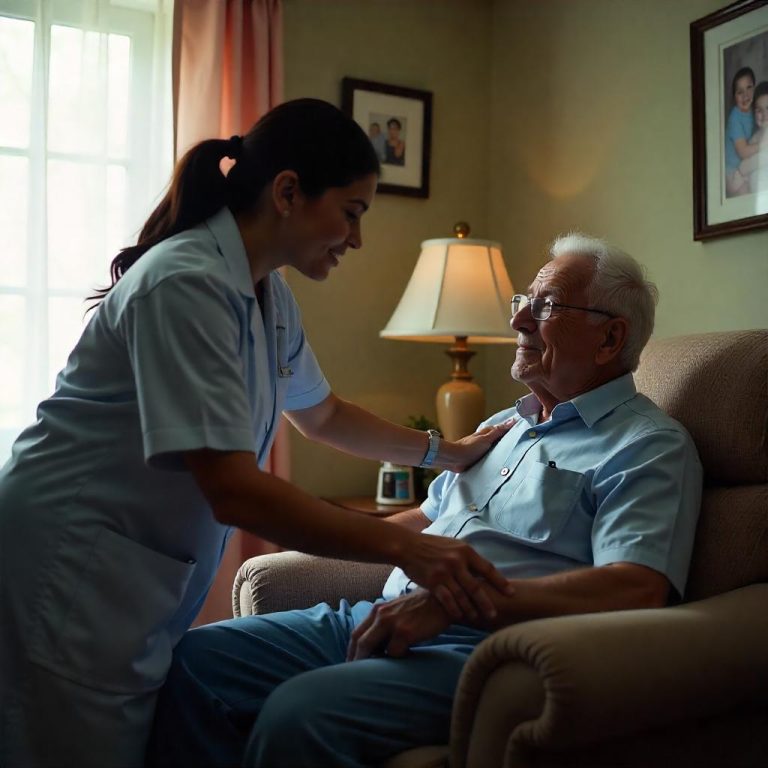Post-hospital care is a crucial component in the recovery process for older adults after a hospital stay. Seniors often face additional challenges during recovery due to underlying medical conditions, cognitive impairments, or physical frailty. Post-hospital elder care programs are designed to provide continued support and ensure a smooth transition from hospital to home or other care settings, helping seniors regain their independence and quality of life.
What Are Post-Hospital Elder Care Programs?
Post-hospital elder care programs are specialized services that assist seniors as they recover from hospital stays, surgeries, or illnesses. These programs are typically provided by healthcare agencies, skilled nursing facilities, or home care providers and are aimed at meeting the senior’s physical, emotional, and medical needs. Post-hospital care includes a variety of services such as rehabilitation, medication management, personal care, and emotional support, ensuring that seniors receive comprehensive care during their recovery period.
Key Components of Post-Hospital Elder Care Programs
- Medical and Nursing CareFollowing a hospital stay, seniors may require ongoing medical care to manage their recovery. This can include monitoring vital signs, administering prescribed medications, dressing wounds, and managing chronic conditions. Skilled nurses or healthcare professionals visit the home or assist in rehabilitation centers to provide these services. Medical teams ensure that recovery is progressing as expected and that any complications are addressed promptly.
- Rehabilitation and Physical TherapyMany seniors require physical or occupational therapy to regain strength, mobility, and independence after hospitalization. Post-hospital elder care programs often include personalized rehabilitation plans designed to help seniors recover from surgery, injury, or illness. Physical therapy helps improve movement, strength, and coordination, while occupational therapy focuses on assisting seniors in regaining the skills needed for daily activities such as bathing, dressing, and cooking.
- Medication ManagementSeniors often take multiple medications for various health conditions, which can lead to confusion, missed doses, or harmful drug interactions. Medication management is a critical part of post-hospital care. Care programs often include medication reminders, organization, and education to ensure that the senior takes their medications correctly and on time. Caregivers may assist with organizing pill boxes or track medication schedules to avoid complications.
- Personal Care AssistanceAfter a hospital stay, seniors may need help with activities of daily living (ADLs), such as bathing, dressing, eating, grooming, and toileting. Post-hospital elder care programs provide personal care assistance to ensure that seniors can safely perform these tasks. This support is often provided by trained caregivers or home health aides who are equipped to handle personal care in a respectful and compassionate manner, maintaining the senior’s dignity and comfort.
- Nutritional SupportProper nutrition is vital for recovery after a hospital stay. Many seniors experience appetite loss or difficulty preparing nutritious meals on their own. Post-hospital care programs often include nutritional assessments and meal preparation assistance to ensure seniors are receiving the proper nutrients to support their recovery. Caregivers may help prepare balanced meals or connect seniors with nutritionists who can create specialized meal plans to address dietary restrictions or specific health needs.
- Fall Prevention and Home Safety ModificationsSeniors are at higher risk of falls and injuries after a hospital stay, especially if they are weakened by illness or surgery. Post-hospital elder care programs often focus on fall prevention and home safety. Caregivers may assist in making the home environment safer by removing hazards, such as rugs, and installing assistive devices like grab bars, ramps, and handrails. Additionally, they may help seniors regain balance and coordination through targeted exercises.
- Cognitive Support and Mental Health CareAfter a hospital stay, seniors may experience confusion, anxiety, or depression, especially if they are dealing with cognitive impairments like dementia. Post-hospital care programs offer cognitive support by engaging seniors in mental exercises, games, and activities that promote brain health. If necessary, mental health professionals may be involved to provide counseling or therapy, helping seniors cope with the emotional and psychological challenges of recovery.
- Social Engagement and Emotional SupportRecovery after a hospital stay can feel isolating, and seniors may experience feelings of loneliness, depression, or anxiety. Post-hospital elder care programs often include a focus on social engagement and emotional support. Caregivers can provide companionship, assist in arranging family visits, and help seniors maintain connections with the outside world. Social activities, hobbies, and outings may also be encouraged to help seniors maintain their emotional well-being.
- Caregiver Support and TrainingFamily members often become the primary caregivers after a hospital stay. Post-hospital elder care programs frequently include support for family caregivers, providing respite care, education, and guidance on how to properly care for their loved ones. Caregiver training can include instruction on managing medical conditions, administering medications, and assisting with mobility, ensuring that families feel empowered and supported during the recovery process.
Benefits of Post-Hospital Elder Care Programs
- Faster Recovery: With the right medical care, therapy, and support, seniors are more likely to experience a quicker and smoother recovery.
- Prevention of Complications: Continuous monitoring and medical attention reduce the risk of complications such as infections, medication errors, or re-hospitalization.
- Enhanced Quality of Life: Seniors can regain their independence and maintain their daily routines with personalized care and support.
- Family Peace of Mind: Family caregivers receive support, reducing stress and allowing them to focus on providing emotional and personal care.
- Safer Environment: Home modifications and fall prevention measures help seniors avoid accidents and live safely during recovery.
How to Choose the Right Post-Hospital Elder Care Program
When selecting a post-hospital elder care program, it is important to consider the individual needs of the senior. Factors such as the severity of their medical condition, mobility limitations, cognitive abilities, and personal preferences should be taken into account. Families should consult with healthcare providers to develop a care plan and choose a program that offers the appropriate level of care. Whether opting for in-home services or a rehabilitation facility, it is essential to ensure that the care provider is experienced, reputable, and able to meet the senior’s unique needs.
Post-hospital elder care programs are vital for helping seniors recover in a supportive and safe environment. These programs ensure that older adults receive the necessary care and assistance they need to recover from hospitalization, regain their independence, and enjoy an improved quality of life.






